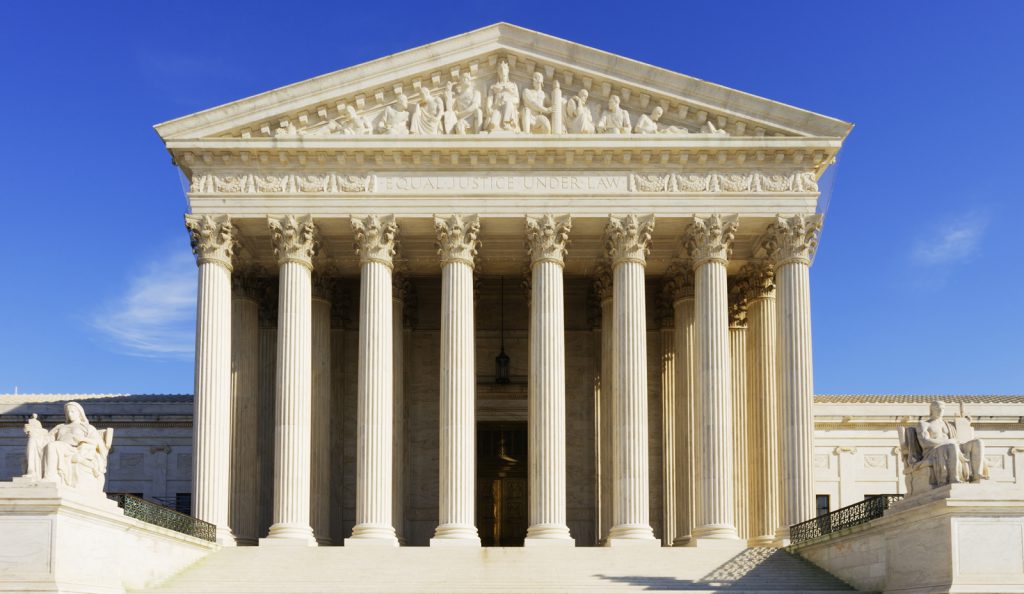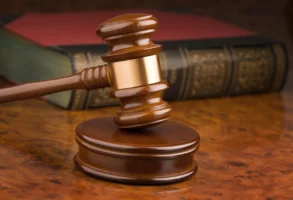
Published May 12, 2015
Introduction by NRO’s Kathryn Jean Lopez:
Ten years ago today, a blog was born: Bench Memos. Since its conception in 2005, it has become a resource for essential, instant, and thorough legal news and analysis (it was not long after it was established that high-ranking men and women in the halls of judicial power would stop me to thank National Review for it).
The blog wouldn’t exist without the hard work of Ed Whelan of the Ethics and Public Policy Center, as well as longtime contributors Matthew J. Franck of the Witherspoon Institute, Shannen Coffin, Jonathan Adler, and others. Whelan talks about some of the highlights over the years.
KATHRYN JEAN LOPEZ: Bench Memos has become quite the resource. What made it so? What need does it speak to?
ED WHELAN: Let’s go back to the beginning. In the spring of 2005, it seemed likely that one or more Supreme Court vacancies would soon develop. My own incentive for spurring the creation of Bench Memos was to have a forum for promoting sound Supreme Court nominees and defending them against the wave of ignorant or malicious attacks that folks on the Left would make. I thought it important to knock down false charges promptly and thoroughly (with all the evidence and argumentation needed to persuade a fair-minded person), before they ever gained traction in the media. I also thought it helpful more broadly to frame the battle over nominees in the broader context of the debate over originalism and judicial restraint.
When the vacancies did develop, Bench Memos quickly attracted a strong readership, including from members of the mainstream media. Most reporters want to get things right, but when it comes to legal matters, they often lack the background and training to distinguish responsible criticisms from baseless attacks. My goal was to assist them and encourage them — and, yes, to highlight when they got things wrong.
Legal matters can often seem very arcane. (Sometimes they are.) One of my goals over the years on Bench Memos has been to try to explain things in terms that are accessible to the intelligent non-lawyer. Of course, I am also presenting a conservative legal perspective that is rarely presented in the media. So there is a big gap to fill.
LOPEZ: What’s your best Bench Memos memory?
WHELAN: One of my favorite Bench Memos memories is a very early one: Within days of the Roberts nomination in July 2005, a reporter for a leading newspaper told me that she and her colleagues covering the nomination were reading Bench Memos several times a day in order to keep informed. That’s when I got my first inkling that Bench Memos would have much greater impact on the Supreme Court nominations in 2005 than I would have dared to hope for a few months earlier.
LOPEZ: What’s your best Bench Memos accomplishment?
WHELAN: Well, it might be tempting to point to some of the nominees that never got confirmed, but I think that the greatest positive impact was in helping get John Roberts and Samuel Alito confirmed. The Alito nomination, in particular, could easily have been much rockier than it turned out to be, and I think that those who followed the ins and outs of the nomination battle appreciate the important role that Bench Memos played.
LOPEZ: What has surprised you about Bench Memos?
WHELAN: I’ve been surprised and pleased by the breadth and diversity of readers — from judges (including some Democratic appointees who have been very generous in their comments), law professors, and lawyers, to reporters, to folks in all walks of life, including at least one umpire.
LOPEZ: What do you hope the future holds for Bench Memos?
WHELAN: I hope that I’ll be very busy from 2017 through 2024 making the case for, and celebrating the confirmations of, strong conservative candidates to replace Justices Ginsburg, Kennedy, and Breyer (and to fill any other vacancies that may arise).
— Ed Whelan is president of the Ethics and Public Policy Center. Kathryn Jean Lopez is senior fellow at the National Review Institute, editor-at-large of National Review Online, and founding director of Catholic Voices USA.








